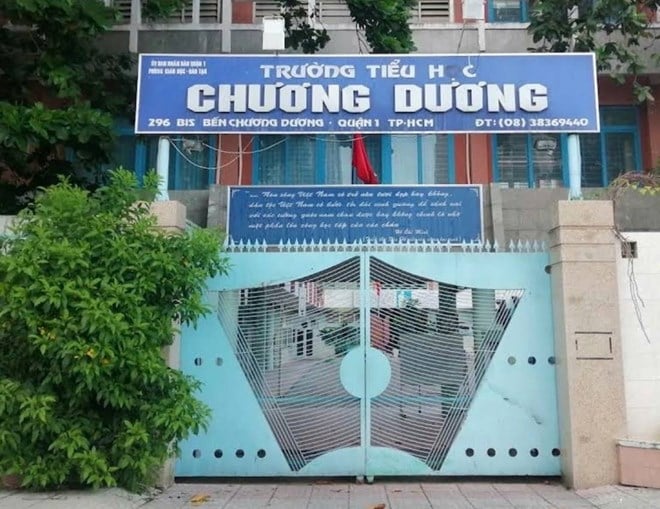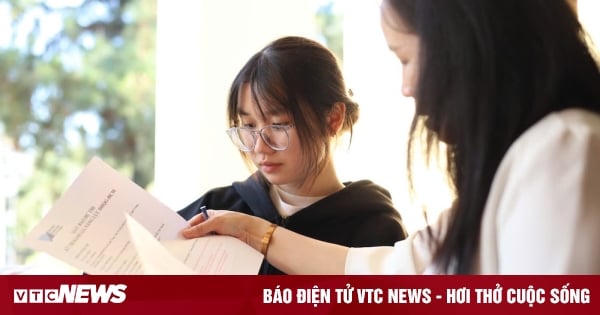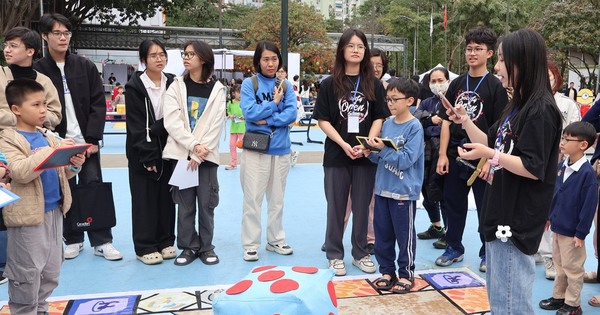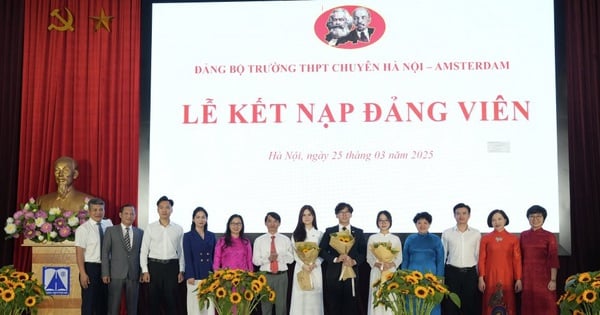The story of a teacher asking parents for money to buy a personal computer immediately caught public attention, even though scandals about year-end contributions have been a regular occurrence for a long time.
For a long time, the story of the year-end contribution has always been a regular story, everyone knows and understands. At the beginning of the year, money is paid, all kinds of money will be brought up in the parent meeting, through the parent-teacher association. In their hearts, the vast majority of parents do not agree, but in reality, they still have to swallow their pride to get the "voluntary" consent of the entire group, the reason is of course known to everyone: For the future of our children.
From the money to buy air conditioners but have to pay every year, electricity to run air conditioners, projectors... Recently, some new "types" of contributions have appeared, such as money for cleaning classrooms. And most recently, the story of a teacher "negotiating" to ask parents for money to buy personal computers at a primary school in Ho Chi Minh City has once again attracted attention.

The school where the incident occurred
Amidst the absurdity that has existed for many years, it seems that these "unique" stories will not only attract public attention but will also resonate with the accumulated discontent about an inappropriate situation that has not been thoroughly resolved for many years.
There is an interesting word in folk language called "asking for help". In this case, the person asking puts himself in a higher position, in a "superior position" and the person being asked, or being asked for, is of course in a position where he cannot give or cannot get, or even is being forced.
In this particular story, the teacher asked the parents. Normally, the person being asked has the right to give or not give, to agree or disagree. However, in the context of their child being in someone else's hands, that is a huge pressure that basically makes parents not dare to express their opinions frankly or, more accurately, refuse if they find it unreasonable.
The story does not stop there. Right after a parent "bravely" refused the option of contributing money to support teachers in buying computers, the teacher immediately responded by asking which student's parent they were.
To some extent, it can be considered a form of "warning" and "gentle reminder" to "opposing" parents. Furthermore, the teacher continued to show his attitude by refusing to prepare a review outline for the class.
It can be affirmed that for many years we have not yet determined for ourselves a clear philosophy and direction for education. As a country heavily influenced by Confucianism, there are still many people who are attached to the philosophy of "one word from a teacher is worth half a word from a teacher", "respecting teachers and valuing education" almost unconditionally.
But in another direction, we have also accepted the view that education is a service industry where learners and their families pay and from there they have certain "requirements" of educational institutions and those who directly teach.
Basically, teachers are also victims of the "half-baked" situation. They also have to face a lot of pressure to ensure a living for themselves and their families, the conflict between the income according to the regulations of the rank system is still inadequate and the demands from real life.

Teacher's message "asking" for money to buy a computer
Up to now, it is difficult to confirm that if a teacher complies with industry regulations, their income is enough to cover their personal and family needs.
In the most recent moves, contributing to the salary reform policy, there are still many opinions proposing to put teachers on the list of highest-paid professions, proving the current shortcomings.
It's just that amidst those shortcomings and difficulties, teachers cannot blame circumstances and then give themselves the right to harass parents, or even to some extent threaten children in school.
After all, students do not want tension in their relationships with teachers, and parents do not want it either. Perhaps only when teachers, parents and society share a common perspective and the view that each person contributes a part to the cause of educational reform, then things can have real progress and improvement.
Above all, every adult needs to determine that each of our actions and words is also an example for the next generation to learn from. If we want future generations of Vietnamese people to be good people in terms of physical, mental and personality, everything needs to start from today...
Source: https://phunuvietnam.vn/co-giao-xin-tien-mua-may-tinh-va-tam-guong-xau-cho-tre-20240929225818015.htm




![[Photo] Prime Minister Pham Minh Chinh meets with King Philippe of Belgium](https://vstatic.vietnam.vn/vietnam/resource/IMAGE/2025/4/1/be2f9ad3b17843b9b8f8dee6f2d227e7)
![[Photo] General Secretary To Lam receives King Philippe of Belgium](https://vstatic.vietnam.vn/vietnam/resource/IMAGE/2025/4/1/e5963137a0c9428dabb93bdb34b86d7c)
![[Photo] Close-up of Vietnam's sniffer dog team searching for earthquake victims in Myanmar](https://vstatic.vietnam.vn/vietnam/resource/IMAGE/2025/4/1/d4949a0510ba40af93a15359b5450df2)
![[Photo] President Luong Cuong and King Philippe of Belgium visit Thang Long Imperial Citadel](https://vstatic.vietnam.vn/vietnam/resource/IMAGE/2025/4/1/cb080a6652f84a1291edc3d2ee50f631)

























![[Photo] Myanmar's capital in disarray after the great earthquake](https://vstatic.vietnam.vn/vietnam/resource/IMAGE/2025/4/1/7719e43b61ba40f3ac17f5c3c1f03720)































































Comment (0)